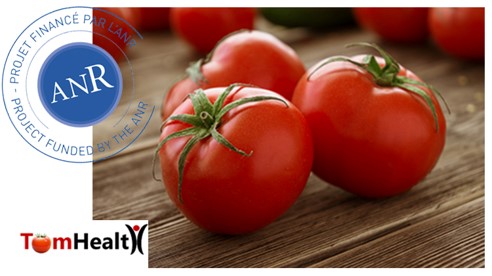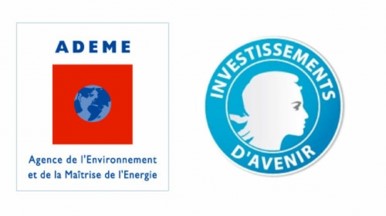The increasing complexity of technologies and the extent of knowledge to be mastered in order to innovate require the development of cooperation in research and innovation. In this context, CAPSULAE has established strategic university partnerships and participates in several collaborative projects, always with the same objective: Accelerate and diversify its innovation process in order to offer the most relevant solutions possible in response to market needs.

Joint Interdisciplinary Research Unit (UMRi 7266 La Rochelle University – CNRS)
Team Biotechnologies and Chemistry of Bioresources for Health

Le Mans Institute of Molecules and Materials (IMMM)
Joint Research Unit (UMR 6283 CNRS)
Team MSP (Methodologies and Synthesis of Polymers)
TomHealth Project (2021-2025)
Improving the health effects of tomatoes through an innovative combination of genotypic choices, farming practices and food technology
The general objective of the TomHealth Project is to propose a highly integrative research concept aimed at:
1. Understanding and predicting the biophysical mechanisms, which lead to the accumulation and compartmentalization of PMNs in contrasting drought-tolerant tomato genotypes.
2. Identifying the molecular mechanisms and physicochemical factors that affect the bioaccessibility and bioavailability of phytomicronutrients during the manufacturing of tomato powder.
3. Studying the preventive effect of tomato powder supplementation in terms of health benefits in mice, and confirming the results in a clinical trial carried out in volunteers with cardiometabolic risk factors.


Coordination: C2VN INRAE Aix-Marseille (J-F. Landrier)
Partners: PSH INRAE Avignon, UMR INRAE SQPOV Avignon, CTCPA Avignon, UMR GEPEA CNRS 6144 (Oniris-Nantes), CAPSULAE La Rochelle


Coordination: Elephant Vert Company
Partners: INRAE PACA-Avignon (Plant Pathology), INRAE Dijon (UMR Agroecology), Elephant Vert Company, CAPSULAE La Rochelle
Scleroza Project (2022-2025)
Development of a microbial biocontrol agent in rapeseed
The SCLEROZA project aims to develop a biocontrol solution based on microorganisms for the protection of rapeseed against sclerotinia. The specific objectives of the project are to:
1. Optimize the production processes of the microorganism;
2. Ensure the stability and viability of the microorganism from the plant to the field using innovative formulation technologies;
3. Evaluate the effectiveness of the biocontrol agent in different pedoclimatic conditions;
4. Estimate the compatibility of the biocontrol solution for use in an integrated protection strategy.
These objectives will be achieved by combining the in-depth understanding of the modes of action of the biocontrol agent, the study of the factors modulating its effectiveness under controlled conditions and in the field, the development of an innovative formulation, and finally the quantification of the environmental footprint of the product.
